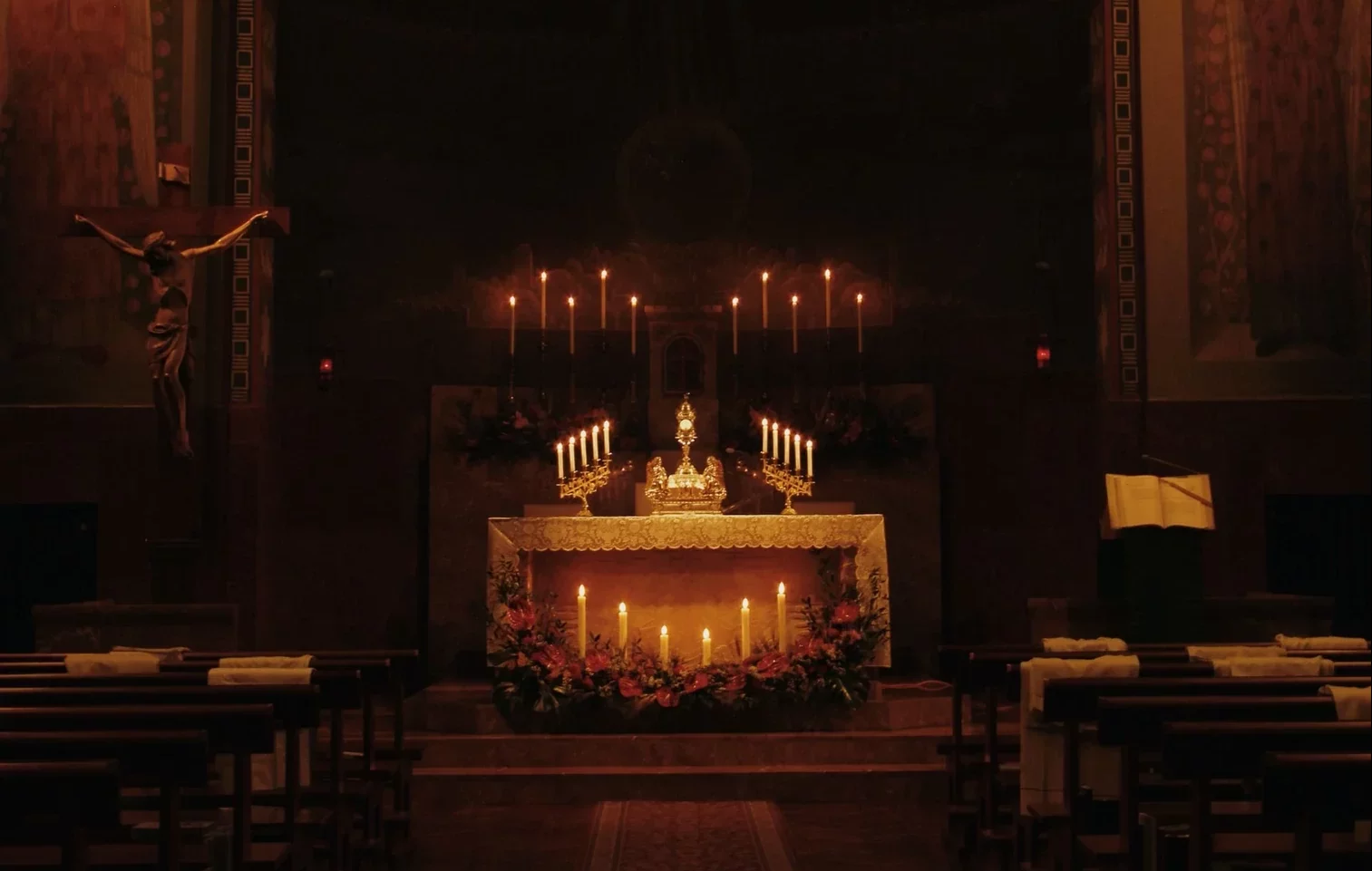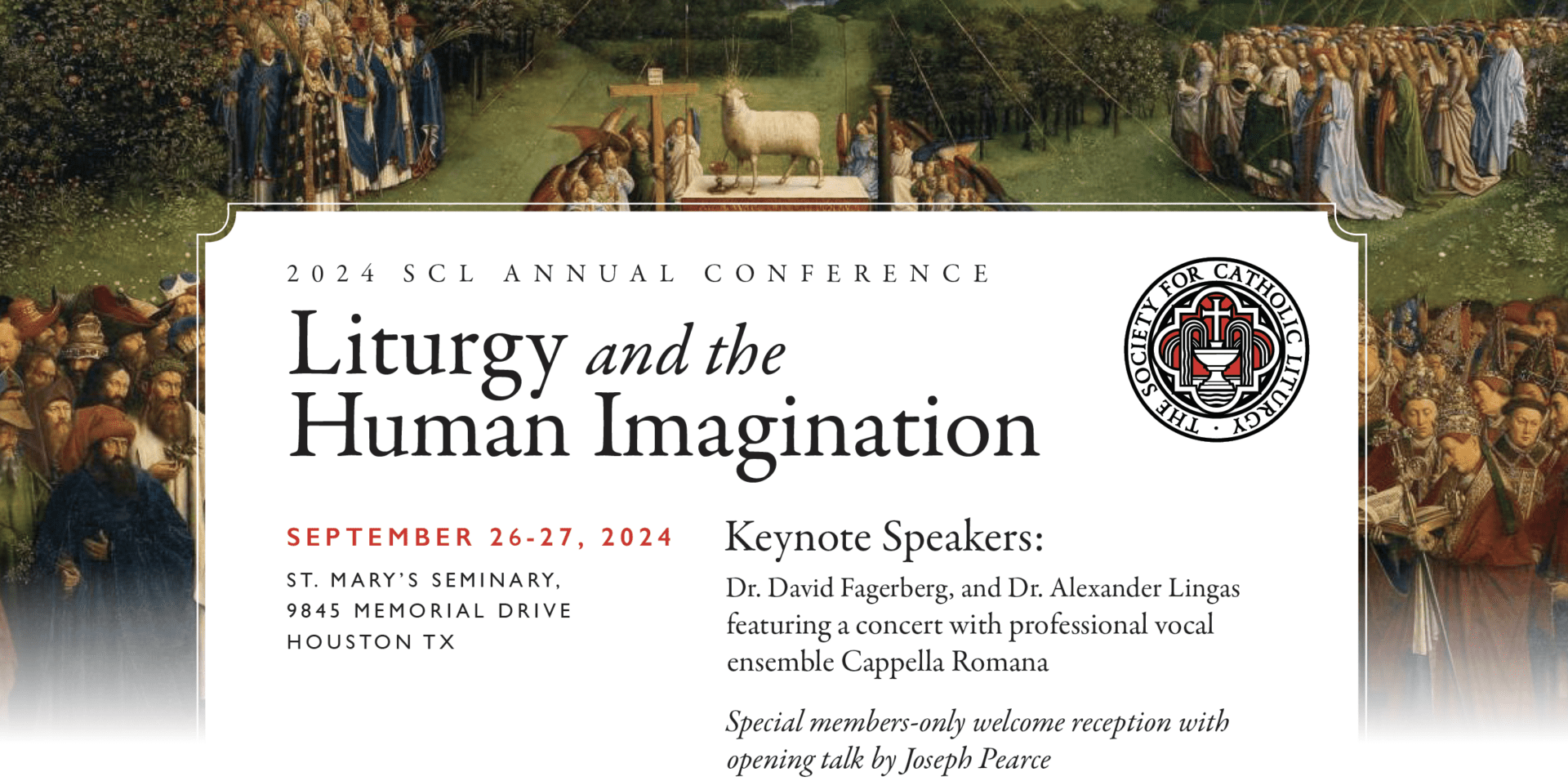People today are hungry for the authentic. We want wood, and linen, and salt, and water to fill our senses. We want the elements that feel enduring, that could have been sourced in another century. We want what feels steady in our time of great uncertainty. Tall trees, fresh water, sandy beaches, and strong wind, beckon us, not just because of two years of hesitancy of the indoors but because of the constancy endurance of the outdoors.
This trend certainly started before we got caught up in the recent snares threatening our health and safety. It appeals to those of us who’ve been marketed to our whole lives, promised the latest new-and-improved around every corner. We want something sure, and true, and eternal to grasp onto as all the world around us seems to swirl in confusion and chaos.
There is also another place where people are being beckoned. The Mass offers the solidity of stone and heavy wooden beams; the readings, millennia old, offer constancy of flowing grace. The quiet and daily sacrifice of the Mass offers what is true and eternal, punctuated by reverent silence. For centuries, Catholics understood this, and entered and spoke in a church only in hushed tones. Daily Masses still offer this, while sadly, most Sunday Masses sound more like a theatre before the feature is shown than a place of recollection and reverence.
There is something appealing about early morning or evening Masses or time spent in adoration before the sun has risen or long after the sun has set. The quiet glow of candles; the busy rush of the day, dashing from event to event has yet to start or been put away, and the calming hush of the darkness.
For several years, as a young woman, I spent New Year’s Eve in the silence of adoration. It was a beautiful way to honor the year that had passed, while preparing for the year to come. I would know when the new year had arrived by the sounds of fireworks, horns, and chaos on the streets outside, breaking up the mid-night silence.
We all thirst for God, for his unchanging permanence, his eternal wisdom, his steady love. There is no getting around it. But we all find different ways to try to satisfy it. Most of our culture fills it in the worst ways possible, like drinking salt water when one is dying for thirst in the open sea. Noise, sound bites, bright screens, hectic days, deadlines, short attention spans all contribute to the mental clutter that keeps us from hearing the whispering voice of God.
We are so attached to these bad habits that the silence of prayer, at Mass, at adoration, or even just in a quiet church or peaceful room, can feel limiting. If we are looking for our usual attachments, like a quick glance at our phones, then it feels arid and even empty. But what happens when one experiences something radically other – when phones are silenced, and the outside noise is muted, when conversations are forced to stop, when eyes and attention shift away from ourselves and on to another – to The Other?
Something happens deep within our souls when we hear God speak in his native tongue. It is much more than the absence of noise. Space is created for something we never knew existed before, like a new way to think, or a new language to speak. There is a crack or a fissure in reality–like an archeologist finding a new, long hidden chamber–that gives us fresh room to grow, to know, to believe.
Silence offers us the opportunity to excavate this new place in our soul: this place where, like the woman at the well, we can meet the one who knows everything we ever did and help us to set it all aright, even–or especially–when we have made most of it very wrong.
Lent is the most natural time to seek out silence and hear God’s voice. We may enter into it a bit hesitantly or fearfully thinking we will find nothing, but we might just leave it knowing we have found everything–the One who endures, slakes, heals, leads, energizes, restores, forgives, calms, and loves.
Carrie Gress has a doctorate in philosophy from The Catholic University of America. She is the editor-in-chief of Theology of Home and the author of several books, including The Marian Option, The Anti-Mary Exposed, and co-author of Theology of Home. She is also a homeschooling mother of five and a homemaker.
The article originally appeared on the Theology of Home website.



